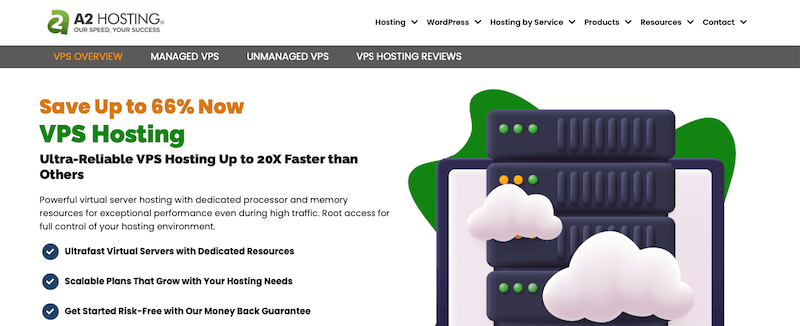Best Web Hosting for SEO: Top Providers to Boost Your Rankings
In the competitive world of digital marketing, search engine optimization (SEO) is one of the most critical strategies for driving organic traffic. While most people focus on content, keywords, and backlinks, a key technical factor is often overlooked: web hosting. Your hosting provider directly affects site speed, uptime, security, and overall user experience—all of which are important ranking signals for search engines like Google.
Choosing the right web host isn’t just a technical decision; it’s a strategic move that can influence how high your website ranks and how long visitors stay. In this guide, we’ll explore how web hosting impacts SEO, what features you should look for, and which providers offer the best web hosting for SEO to support your optimization goals.
How Web Hosting Impacts SEO
Search engines reward websites that provide fast, secure, and seamless user experiences. Many of those factors—like page speed, server response time, and uptime—depend on your web hosting.
- Site Speed and Server Performance
Google considers site speed a direct ranking factor. A slow site frustrates users and increases bounce rates. Hosting providers with modern infrastructure (like NVMe SSDs and LiteSpeed servers) can significantly reduce load times and improve your SEO. - Uptime and Reliability
Frequent downtimes mean your site could be unavailable to both users and search engine crawlers. If search engines find your site offline too often, it could lower your rankings. Choosing a host with 99.9% or higher uptime guarantees is crucial. - Geographic Server Location
Physical server proximity influences load speed for users in specific regions. Hosting your site on a server closer to your audience means faster loading, which translates into better SEO performance for local searches. - Security and HTTPS
HTTPS is now a standard ranking signal. Search engines prioritize secure websites, and users trust them more too. A good hosting provider should offer easy SSL integration and advanced security measures like malware scanning and firewalls. - Mobile Optimization
Google’s mobile-first indexing means it ranks your site based on its mobile version. Hosting that supports responsive design and offers mobile-friendly caching solutions gives you a distinct SEO edge. - Scalability for Growth
Sudden traffic surges shouldn’t result in downtime or slow loading. A scalable hosting plan allows your site to grow without sacrificing performance—a critical element for long-term SEO success. - Clean IP Address and Hosting Reputation
If you’re on a shared server with sites that have been blacklisted or marked as spammy, your SEO could suffer too. Quality hosts offer clean, trusted IP ranges and sometimes even dedicated IPs for added control. - Technical Flexibility
Effective SEO sometimes requires technical configuration—like creating custom redirects, modifying .htaccess, or adjusting caching settings. You need a host that allows full access and supports SEO-related tweaks.
Essential Hosting Features for SEO
The right SEO friendly web hosting provider can strengthen your SEO efforts, while the wrong one may hold your site back no matter how good your content is. To give your website the best chance of ranking well, you need a host that offers features designed to support speed, stability, and flexibility.
Here are the most important hosting features to look for when SEO is a priority:
SSD or NVMe Storage
Solid-state drives offer much faster data access compared to traditional hard drives. NVMe drives go even further by significantly speeding up read/write operations. This translates into faster page load times, which search engines reward with better rankings.
HTTP/2 and LiteSpeed or NGINX Servers
These modern protocols and web servers reduce latency and improve connection efficiency. They allow browsers to load multiple resources simultaneously, resulting in a faster, more responsive experience for users and bots alike.
Free SSL Certificates
HTTPS is now a basic requirement for websites. It encrypts data, builds user trust, and is a confirmed ranking factor. A good host should offer free, auto-renewing SSL certificates, ideally integrated into the control panel for easy setup.
Daily Backups
SEO is a long-term investment, and data loss can set you back significantly. Daily backups ensure that if your site is compromised or something breaks, you can quickly restore it without losing valuable content or ranking progress.
One-Click CMS Integration
Platforms like WordPress are SEO-friendly and widely used. Your hosting provider should make it easy to install and manage these platforms so you can get started quickly with your content and SEO tools.
Caching Support
Caching stores frequently accessed data to speed up future requests. Hosting that supports server-level caching (like OPCache, Varnish, or LiteSpeed Cache) can dramatically reduce load times and decrease bounce rates.
SEO Plugin Compatibility
Whether you’re using Yoast SEO, Rank Math, or All in One SEO, your host should support the latest PHP versions and allow access to important configuration files. This flexibility enables fine-tuned optimization across your entire site.
When these features are present, your hosting environment actively supports your SEO goals rather than standing in the way. When these features come together, they form the backbone of the best web hosting for SEO, helping your site perform better in search results.
Types of Web Hosting Suitable for SEO
Not all hosting is created equal when it comes to SEO. Here’s how different types compare:
- Shared Hosting
Ideal for small websites and startups with low traffic. Performance can be inconsistent due to shared resources, so it’s best to choose a provider that offers strong resource isolation. - VPS Hosting
With virtual private servers, you get dedicated resources and more control—ideal for growing websites that need better speed and uptime without paying for a full server. - Dedicated Hosting
The top tier for performance. You control everything, from server resources to IP address, which is great for high-volume websites and advanced SEO strategies. - Cloud Hosting
Offers high scalability and often comes with global server distribution, which improves load times in multiple regions—a major plus for international SEO. - Managed WordPress Hosting
Pre-configured environments tailored to WordPress. These often include automatic updates, caching, and security enhancements optimized for SEO.
We recommend choosing a provider that offers a range of hosting types, each with configurations optimized for SEO performance—ensuring your site runs smoothly no matter its size or traffic level.
Top SEO Friendly Web Hosting Providers
Several hosting providers stand out when it comes to offering features that support SEO, and they’re frequently recognized among the best web hosting for SEO options available today.
SiteGround

SiteGround is known for its managed WordPress hosting and custom caching tools. Their servers are well-optimized for performance, and they offer daily backups, free SSL, and global data center options, making them a strong choice for SEO-focused users who want reliable uptime and support.
Kinsta 
Kinsta delivers premium managed WordPress hosting backed by the Google Cloud Platform. Their infrastructure emphasizes speed and security, including automatic backups, built-in CDN, and staging environments. It’s a good fit for businesses that want top-tier performance and scalability with minimal maintenance.
A2 Hosting

A2 Hosting provides developer-friendly environments and strong performance through their Turbo Servers, which include caching and faster PHP processing. They offer free SSL, SSD storage, and multiple data center locations, which help with both local and global SEO strategies.
InMotion Hosting

InMotion Hosting offers reliable business-class hosting with SSD storage, free SSL, and solid uptime guarantees. Their plans include marketing tools and scalable resources, making them suitable for small businesses looking to grow their online visibility.
HostStage

HostStage offers SEO-optimized hosting with NVMe storage, LiteSpeed servers, and full root access on VPS and dedicated plans. They provide clean IP ranges, free SSL certificates, and daily backups. Their infrastructure is designed to support fast load times, uptime consistency, and flexibility for advanced SEO configurations.
Each of these providers offers distinct advantages, but the best choice depends on your specific needs, budget, and technical requirements. Look for the provider whose features align most closely with your SEO strategy and growth goals.
Choosing the Right Hosting for Your SEO Goals
There’s no one-size-fits-all solution when it comes to SEO hosting. The ideal setup depends on the type of website you run, your traffic expectations, and your target audience.
- Targeting a local audience? Choose a host with data centers close to your primary visitors. Proximity reduces latency and boosts page speed, which helps improve rankings for location-specific searches.
- Running a blog or portfolio? Shared hosting or managed WordPress plans are a practical and cost-effective starting point. Just make sure the host provides solid performance features like SSD storage, caching, and free SSL to meet SEO needs from day one.
- Running a large business or eCommerce store? VPS, cloud, or dedicated hosting is the better route. These plans offer more resources, scalability, and control to handle high traffic volumes without compromising speed or uptime—both essential for ranking and user experience.
Beyond the basics, think about your technical flexibility. If you plan to configure redirects, manage structured data, or use custom SEO tools, you’ll need a host that gives you full access to essential files and settings. To avoid these limitations, it’s important to choose the best web hosting for SEO, tailored to your technical and strategic needs.
Common SEO Hosting Misconceptions
Many site owners underestimate the role hosting plays in SEO. Misconceptions about hosting can lead to slow, unreliable websites that fail to reach their full ranking potential.
- “All hosting is the same for SEO.” This is far from true. Factors like load speed, uptime, and server response time are all influenced by your host—and each plays a role in your rankings.
- “Cheap hosting will do the job.” While it may seem cost-effective, low-end hosting often lacks the speed, security, and support needed for a stable, search-optimized site. In the long run, it can end up costing you traffic and visibility.
- “SEO is all about content.” Great content is essential, but search engines also evaluate technical performance. If your pages load slowly or go offline frequently, your content may not get the attention it deserves.
Ultimately, hosting acts as the technical foundation of your SEO strategy. A fast, secure, and reliable hosting environment ensures that your site is always accessible, performs well, and offers the best possible user experience—exactly what search engines want to see.
Final Words
Web hosting plays a much larger role in SEO than many realize. It’s not just about storing your website—it’s about ensuring your content is delivered quickly, securely, and reliably every time a visitor or search engine bot accesses it. A strong hosting foundation improves performance, reduces technical errors, and helps your SEO efforts go further.
As you build or grow your website, choosing a host that supports your long-term optimization strategy can make a real difference in how your site ranks and performs.
Power Your SEO with HostStage
At HostStage, we understand how critical your hosting environment is to the success of your SEO strategy. That’s why we’ve designed our Unmanaged Linux VPS Level 2 plan to deliver the speed, reliability, and control necessary for optimal performance. This plan includes 1 Core, 2 GB RAM, and 30 GB SSD NVMe storage—ideal for SEO professionals, growing businesses, and performance-focused websites. We’re here to help you build a strong foundation for long-term SEO success—supported by robust infrastructure and expert assistance.



